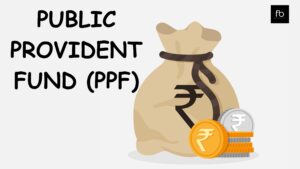Table of Contents
Meaning
‘Time value of money’ is a core principle of finance and a key concept in investing. It simply means ‘money in hand today has greater value than the same amount of money in the future’. This is because money has a potential to grow as time passes.
Understand time value of money with an example
The concept is better explained with an example. Amit has INR1,000 today which he deposits in his savings bank account for 1 year. After 1 year, he would earn interest of INR 20. If he doesn’t spend the money, he would earn interest on the new balance (INR1020) in the next year.
Continuing with this example, suppose Amit keeps INR1,000 at home for 1 year. In this case, he will earn no additional income. Also after 1 year, the purchasing power of INR1,000 will reduce because of yearly inflation. If Amit could have bought a headphone with INR1,000, that same headphone would cost more than INR1,000 after 1 year due to inflation. Thus, if money is not invested, its value will reduce over time. If money is invested, its value will grow over time.

Formula to calculate Time Value of Money
The formula to calculate time value of money is:
FV = PV x [1 + (i/n)] (n x t)
- where, FV=Future value of money
- PV=Present value of money
- i=interest rate
- n=number of compounding periods per year
- t=number of years
Close relation to Opportunity Costs and Compounding
Time value of money is closely related to opportunity cost and compounding. The below example illustrates the relation.
Anand has INR20,000 which he keeps at home. If Anand had invested this money in fixed deposits, he would have earned an annual interest of 10% per year. The amount after 1 year would be INR20,000 + INR2000 (annual interest) = INR22,000. Because he kept cash idle, Anand lost the opportunity of earning income of INR2,000 (annual interest). This is ‘opportunity cost’.
Compounding has a massive effect on time value of money. Taking the above example, suppose Anand invested INR 20,000 in a financial scheme where interest @ 10% is compounded
- Daily compounding: FV = 20,000 x [1+(10%/365)](365×1) =22,103
- Monthly compounding: FV = 20,000 x [1+(10%/12)](12×1) =22,094
- Quarterly compounding: FV = 20,000 x[1+(10%/4)](4×1)=22,076
How is time value of money used?
- Time value of money is widely used in financial planning, budgeting and risk management.
- Businesses, investors can compare projects, investment opportunities and arrive at investment decisions.
- It is the most critical concept in discounted cash flow analysis which is widely used to evaluate investment opportunities.
- The amount of retirement corpus needed to live comfortably post retirement can be derived using time value of money. This in-turn also helps to determine the monthly savings one needs to set aside to reach the retirement corpus goal.
Image credit: Image by freepik



